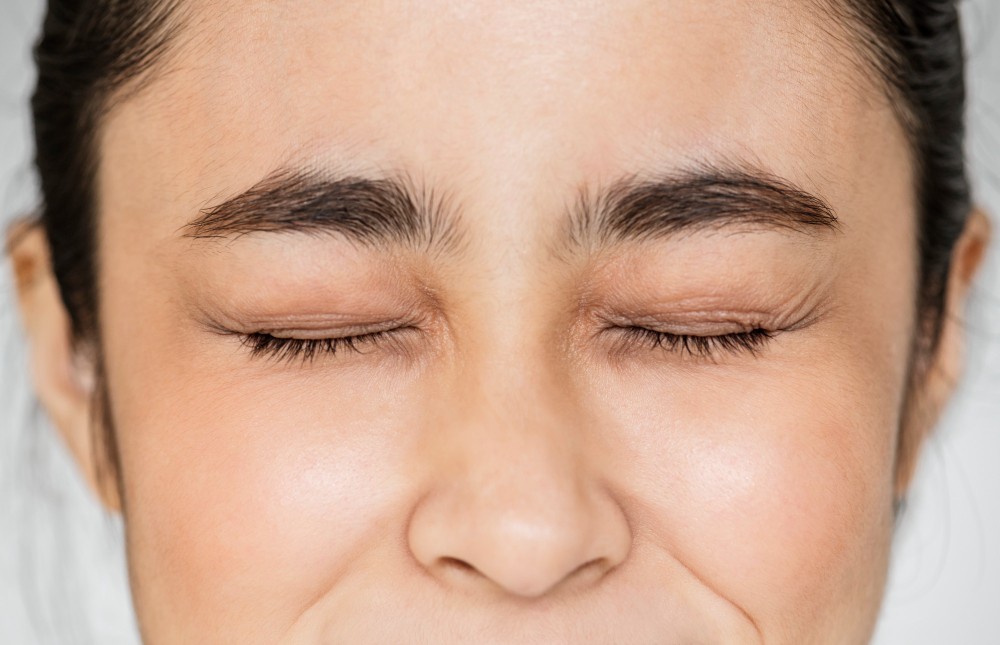Eksim adalah peradangan kulit yang ditandai dengan kulit memiliki bercak merah, bersisik, atau gatal. Pemicu eksim bisa bermacam-macam dan berbeda-beda setiap orang. Mengenali apa saja pemicu eksim bisa membantu mencegah eksim kambuh dan mengendalikan gejala yang muncul.
Apa Itu Eksim?
Eksim adalah peradangan kulit kronis yang menyebabkan kulit mengalami gatal, ruam, dan kering. Kondisi ini juga dikenal dengan istilah dermatitis atopik. Ketika kambuh, kondisi ini dikenal dengan istilah flare up yang ditandai dengan:
- Bercak kemerahan, kecokelatan, atau abu-abu yang meradang. Bercak dapat muncul di tangan, kaki, dada, leher, bagian dalam lipatan siku dan lutut
- Gatal parah yang memburuk di malam hari
- Kulit kering dan kasar atau bengkak karena digaruk
- Muncul benjolan kecil yang menonjol dan mengeluarkan cairan
- Kulit yang menebal dan pecah-pecah
Pemicu kambuhnya eksim pada setiap orang berbeda-beda. Anda perlu mengenali pemicu eksim agar dapat melakukan pencegahan dan pengelolaan gejala eksim dengan baik. Beberapa hal yang dapat memicu kambuhnya eksim antara lain:
- Suhu panas atau dingin
- Paparan klorin atau zat kimia tertentu
- Debu
- Serbuk sari
- Bulu hewan atau peliharaan
- Penggunaan sabun, sampo, atau deterjen
- Stres
Baca Juga: Bahan Skincare yang Sebaiknya Dihindari Pengidap Eksim (Dermatitis Atopik)
Tips Mencegah Eksim Kambuh
Mengetahui apa pemicu eksim pada kulit bisa membantu mencegah eksim Anda kambuh. Langkah pencegahan eksim perlu disesuaikan dengan pemicunya. Beberapa cara yang bisa Anda lakukan untuk mencegah eksim kambuh antara lain:
Menggunakan losion atau pelembap
Eksim dapat kambuh akibat kondisi kulit kering. Jika hal ini menjadi pemicu kambuhnya eksim Anda, maka sebaiknya gunakan losion, krim, atau salep pelembap untuk menjaga kelembapan kulit. Selalu gunakan pelembap meskipun gejala eksim telah mereda.
Sebaiknya gunakan pelembap yang lembut dan bebas pewangi untuk mencegah iritasi. Gunakan pelembap segera setelah mandi untuk mempertahankan kelembapan kulit.
Gunakan humidifier
Udara kering dapat memicu flare up eksim. Untuk mencegahnya, Anda bisa menggunakan humidifier di ruangan agar udara dan kulit tetap lembap termasuk ketika Anda tidur.
Baca Juga: Manfaat Vitamin E untuk Mengatasi Eksim Kulit
Hindari bahan kimia, pewangi, dan iritan lainnya
Beberapa bahan dalam produk perawatan kulit seperti sampo, sabun, losion, dan produk rumah tangga seperti sabun cuci piring mengandung pewangi yang dapat menjadi iritan. Jika Anda pernah mengalami eksim kambuh karena zat kimia ini sebaiknya hentikan pemakaian produk yang mengandung bahan tersebut.
Mengenakan pakaian longgar
Pakaian ketat atau baju hangat yang menyebabkan keringat, gerah, dan gesekan dengan kulit dapat memicu eksim. Untuk mencegahnya Anda bisa menggunakan pakaian longgar dengan bahan yang nyaman.
Mengelola stres
Ketika stres, tubuh akan melepaskan hormon stres yang menyebabkan peradangan. Stres juga menyebabkan pembuluh darah melebar serta melepaskan histamin, senyawa yang dapat memicu rasa gatal. Akibatnya, kondisi ini bisa meningkatkan terjadinya eksim.
Untuk mencegah terjadinya eksim, Anda bisa melakukan relaksasi seperti meditasi, yoga, atau menulis jurnal untuk mengelola stres. Jika stres yang Anda alami tidak mereda dengan metode tersebut sebaiknya periksakan ke psikolog atau ke dokter.
Menjaga kebersihan rumah
Beberapa orang mengalami eksim kambuh akibat paparan alergen seperti debu, bulu hewan peliharaan, atau serbuk sari. Bersihkan rumah Anda dari debu sesering mungkin dan hindari paparan asap rokok di tempat umum.
Eksim dapat dipicu oleh banyak hal di sekitar Anda. Mengenali pemicu eksim dapat membantu mencegah dan meredakan gejala eksim yang muncul. Jika memiliki pertanyaan seputar eksim sebaiknya konsultasikan ke dokter atau manfaatkan fitur konsultasi pada aplikasi Ai Care yang bisa diunduh di App Store atau Play Store.
Mau tahu informasi seputar penyakit lainya? Cek di sini, yah!
- dr Nadia Opmalina
WebMD Editorial Contributors. (2023). How to Live Better With Eczema. Available from: https://www.webmd.com/skin-problems-and-treatments/eczema/live-better-eczema
Cleveland Clinic. (2023). Here’s Why Your Eczema Keeps Flaring Up. Available from: https://health.clevelandclinic.org/managing-eczema-flare-ups
Health Direct. Eczema. Available from: https://www.healthdirect.gov.au/eczema












